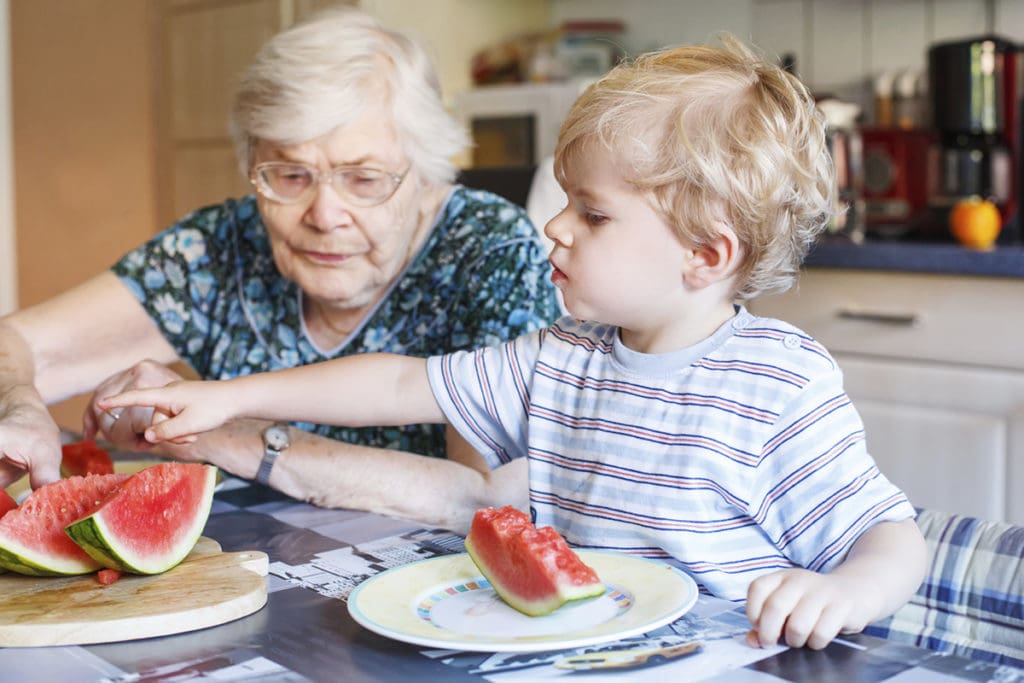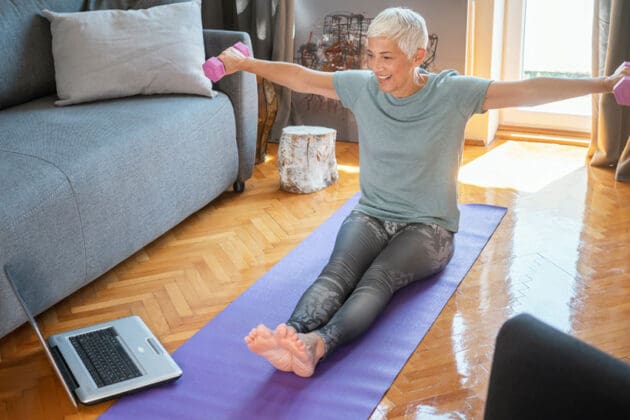
Your body needs many different things in order to function. Air helps you breathe. Eating enough food gives you energy. And drinking enough water is a key part of preventing dehydration — yet many people struggle to get enough fluids each day.
Water plays a big role in helping your body stay at the right temperature and removing waste. Every day, your body loses about 64 ounces of water when you exhale, sweat, and urinate. You replace most of this by drinking fluids and by eating. Factors like physical activity, extreme heat, and high humidity in the summer months can cause you to lose even more water. If you lose more water than you take in, you can become dehydrated.
Here are some important tips that can help you prevent dehydration and get the fluids your body needs to be at its best.
Who’s at Risk for Dehydration
Dehydration — which occurs when your body loses more fluid than it takes in — is a serious health risk. It’s most often associated with heat waves, but dehydration can happen at any time of year, especially if you have an illness that causes diarrhea, vomiting, fever, or sweating.
Medications that increase urination, including some antihistamines and blood pressure medications, can also dehydrate you. If you have a chronic illness that affects your kidney function, such as diabetes, you are at a higher risk for dehydration.
Older adults also become dehydrated easier. As we age, our bodies do not hold on to water or respond to extreme heat and humidity as well as they once did.
When it comes to caring for your aging loved one, VNS Health offers comprehensive senior care options so you can be confident they’re getting the help they need to stay safe at home.
Warning Signs of Dehydration
You may not always feel thirsty when you are dehydrated. For example, your sense of thirst decreases with age, so by the time you feel thirsty, you may already have lost too much fluid.
Rather than go by thirst, go by the color of your urine. It should be clear and light yellow. Dark or amber-colored urine is a sign of severe dehydration.
Other signs of severe dehydration include:
- Little or no urine
- Dry skin (it stays folded when pinched)
- Irritability, dizziness, or confusion
Preventing Dehydration
Not getting enough fluids, especially if you are physically active or it is hot outside, is the most obvious cause of dehydration, but it isn’t the only one.
It’s important to stay hydrated all year long, especially when:
- Winter rolls around. Indoor air can dry skin and mucous membranes, so your need for fluids increases. In addition, you may need to replace sweat lost while wearing heavy clothing.
- You notice the first sign of illness, like a cold. Increasing your water intake is important if you are sick. If your dehydration is caused by diarrhea, avoid fruit juice, sodas, and caffeinated beverages.
- It’s hot or humid outside. When it’s warmer, additional water helps keep your body cool and hydrated.
Eat and Drink to Stay Hydrated
For most of us, drinking plenty of fluids and eating foods with a high water content — including most fruits and vegetables — can keep our bodies properly hydrated.
To help you stay hydrated, you can:
- Drink six to eight glasses of fluid every day. (This amount includes the water both in foods and in beverages.)
- Try to get most of your daily fluid from water. Water is the best fluid for hydration because it has no calories, sugar, carbonation, or preservatives.
- Limit fruit juices, sodas, and fitness waters because they contain sugars that can make you feel thirsty.
- Eat fruits and vegetables high in water, such as grapes, oranges, cantaloupe, honeydew melon, watermelon, apples, tomatoes, lettuce, cucumbers, and celery. See the table below for other hydration-boosting foods.
- Avoid or limit coffee, tea, alcohol, and sodas containing caffeine. These drinks increase urination, causing you to lose water faster.
Make Hydration a Part of Your Daily Routine
Preventing dehydration is a key part of staying healthy, and there are many ways you can make sure you’re getting enough fluid each day.
Try to work hydration into your daily routine by:
- Having a glass of water when you wake up in the morning.
- Keeping a glass of water next to your bed at night.
- Carrying a water bottle with you if you are away from home for long periods of time.
- Avoiding the midday sun and limiting physical activity when it is very hot outside.
- Scheduling outdoor activities in the morning or evening.
How Much Water Do You Need to Prevent Dehydration?
Most adults need about 64 ounces (half a gallon) of fluids every day, but that amount goes up with heat and humidity. How much fluid you need each day can also change based on how active you are, what medications you take, and other factors.
Before you guzzle a half gallon of water, remember that most fluids count toward your 64 ounces, as do many foods. Raw fruits and vegetables have a high water content as well and can help you stay hydrated.
Foods That Boost Hydration
This table gives the water content in various foods and the amount of each you need to eat to obtain about ½ cup (4 ounces) of water.
| Food | Portion | Water Content |
|---|---|---|
| Cucumber | 1 cup, peeled and sliced | 96% |
| Tomato | 1 medium | 94% |
| Watermelon | 1 cup, diced | 92% |
| Bell pepper | ¾ cup, sliced | 92% |
| Grapes | 1 cup | 92% |
| Cantaloupe | 1/10 (a small wedge) | 90% |
| Orange | 1 medium | 87% |
| Blueberries | 1 cup | 85% |
| Apple | 1 medium | 84% |
By drinking enough fluid each day and knowing the symptoms of dehydration, you can help your body to stay healthy.


